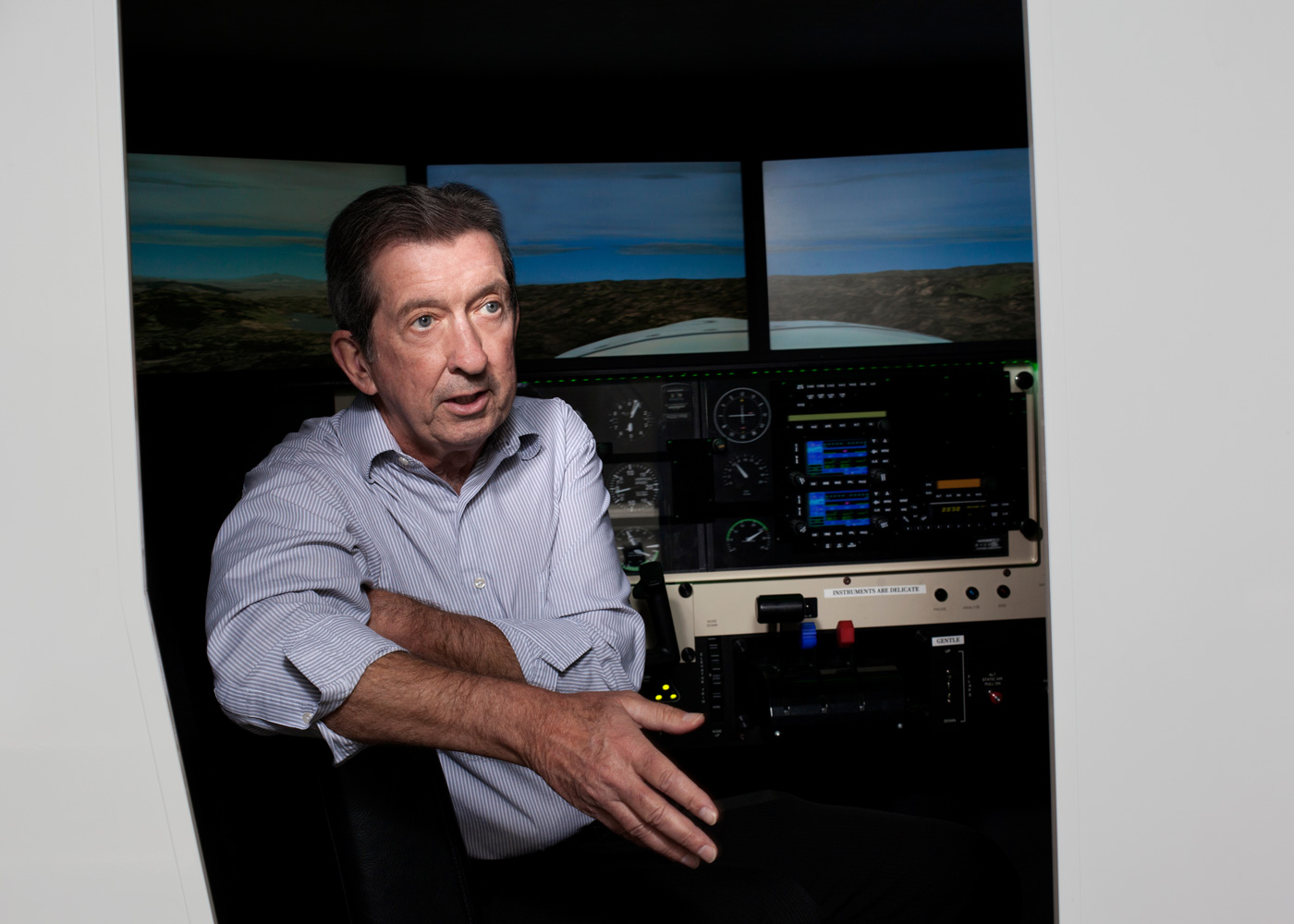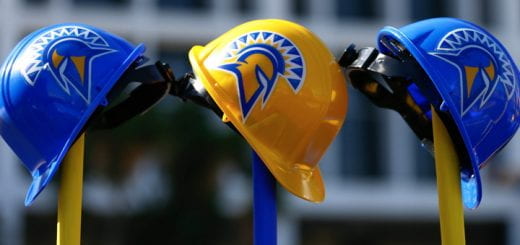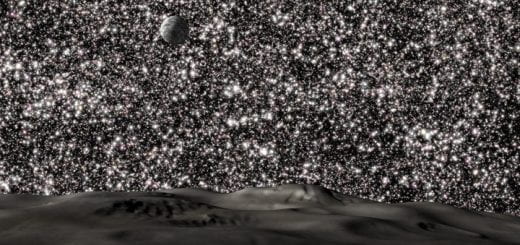Kevin Jordan: 2015 President’s Scholar
The President’s Scholar Award recognizes a faculty member who has achieved widespread recognition based on the quality of scholarship, performance or creative activities. This year’s winner comes from the College of Social Sciences. He will be honored at the 16th Annual Faculty Service Recognition and Awards Luncheon on March 11, 2015. Tickets are available for purchase.

Photo: Thomas Sanders, ’14 MFA Photography
“I don’t fit the traditional mold of a scholar, but it’s wonderful to train scientists and get them in the right place to do great science.”As project director of numerous cooperative agreements between San Jose State and the Human Systems Integration Division at the NASA Ames Research Center, Jordan’s current human factors research supports the Congress-mandated Next Generation Air Transportation System project, which aims to improve safety and efficiency of air travel while minimizing environmental impact by 2025. It’s a tall order that Jordan and his team are tackling though research on the visual perception and ergonomic issues of air traffic control operations.
“Our team is making great inroads with the Next Gen Air Transportation System project,” says Jordan, citing outcomes like new virtual vision technology that allows planes to move through fog and software solutions for safely sequencing planes arriving on runways. Says nominator Sheila Bienenfeld, former dean of the College of Social Sciences: “Professor Jordan’s research has an impact on the lives and safety of all air travelers, as well as anyone involved with aviation.”
Not bad for a researcher self-taught in human factors. “The SJSU job description I applied to in 1984 said ‘human factors or visual perception,’ which was my specialty,” says Jordan with a laugh. “When I arrived, the dean kept introducing me as his new human factors person. I would correct him: ‘No, I’m your new perception person!’ Eventually they said it enough that I believed them. Necessity is a great teacher.”
Jordan says the hallmark of his career has been his work with graduate students as research assistants. “It’s the most gratifying thing in the world to know that I’ve contributed to the next generation of scientists who will contribute to the next generation of breakthroughs.” Though he spent over two decades on campus, Jordan hasn’t been in the classroom for five years. “I loved teaching,” he says. “I miss it immensely. But you come to a point in your career where you have to ask yourself: How can I best serve the university? And I do that through research at NASA Ames.”



